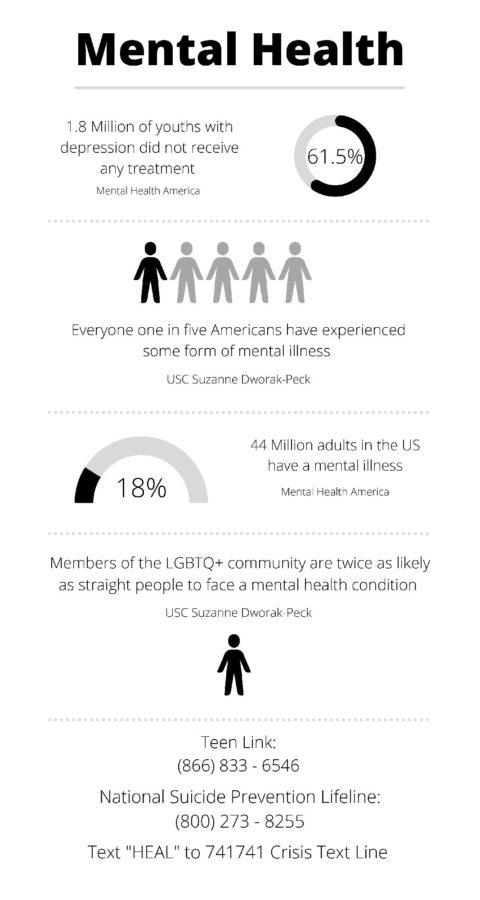According to the CDC mental health “affects how we think, feel, and act,” and while I completely believe this to be true, it can be so much deeper than that.
For the last year, I have let my bad mental health define who I am. It wasn’t until a couple of months ago that I realized how unhealthy that was. I isolated myself from not only everyone, but everything. Instead of going out and being a teenager, I made the choice to disappear.
I was not motivated to get out of bed.
I completely lost my sense of self.
Depression is a genetic disease, but if you’re like me, it can come from experiences—the experience of COVID-19, loneliness and isolation, anxiety, stress and low self-esteem. During the shutdown I slowly started to lose touch with all my friends; I tried, but eventually I just stopped answering my phone. It wasn’t because I didn’t want to talk to them; it was because every time I went on my phone, I went on social media. Every time I went on social media, I would start to feel bad about myself and my appearances.
My appearance has always been something that causes my anxiety; social standards have made it almost impossible for me to be comfortable in my own skin. I want to be myself, but if I stand out people will judge me. Nobody is watching me as much as I think they are, but when I step out of my car, I feel like everybody is staring at me.
Overthinking is what generates my anxiety. When I overthink, I over-analyze how I stood. what my voice sounded like, what my outfit and hair looked like. Anxiety holds me back; it causes me to fear things that should be enjoyable.
Existential crises are not talked about enough. Maybe that is because we are teenagers and adults feel like we don’t overthink our lives, or maybe it’s because people feel like it is unimportant. When I experience an existential crisis all I hear are my thoughts, sometimes they are random and weird and other times they’re scary, I question myself, my life, everything, I re-evaluate my life, future and past.
A lot of people say that when they finally start to deal with their bad mental health it is overwhelming, but the truth is, it wouldn’t be so overwhelming if we didn’t suppress our feelings. I like to think that I am an honest and trustworthy person, but that only applies when I am talking about other people. I always tell myself that I am ok, especially in my worst moments, and if I say it enough times, I start to believe it myself. The truth is, it’s okay to not be okay if you are doing something about it.
There are many misconceptions when it comes to mental health. When most people think of mental health their mind automatically goes to teenagers, why is that? Maybe it’s because we are so stressed out with everything we must do. We have the stress of worrying about our future, there is so much pressure for us to already know what and how we want to spend the rest of our lives, it’s kind of insane. If you’re like me you stress over time, time in the day, week, month, year. I always feel like no matter what I do I will never have enough time.
My mental health suffers because I don’t know how to let go of the past, whether it was an hour ago and I keep overthinking something I said in a meaningless conversation or me thinking of a memory with someone I don’t talk to anymore. What I need to learn is that you can’t change the past, you can’t fixate on mistakes, and you can’t force people to like or care about you.
Somebody sitting next to you could be struggling with mental health and you would have no idea. The fact is that if you don’t tell anybody you’re struggling, nobody will know.






